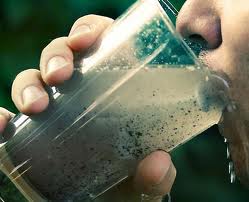This is a guest post by Clint Robertson.
There’s been a lot of hype about Keystone XL over the past few months. The proposed pipeline extension, which would carry tar sands crude from Canada to the Gulf of Mexico for refinement, has caused an uprising among environmentalists. There have been protests in front of the White House and U.S. State Department, countless news articles and even President Obama has made public statements about the project.
But in the midst of such a controversial matter, many may have overlooked another pipeline proposal — one that carries not oil, but water to fracking sites.
The pipeline project was proposed by Antero Resources Inc., an energy company with fracking investments. Antero plans to build a $500 million pipeline to carry water from the Ohio River to its fracking sites in the deregulated energy state of Ohio and the regulated state of West Virginia.
The Wall Street Journal recently called Antero’s plan “a costly wager” and noted market analysts’ concerns that “the investment’s long-term success could hinge on the region’s rainfall.”
Millions of gallons of water are used every day to harness the natural gas resources found in shale formations across the nation. This water is injected with a chemical cocktail and blasted into the earth to drive out natural gas resources. Though the process has caused a boom in fossil fuels and lowered the cost of energy, it’s a controversial issue. Many believe these sites contaminate drinking water and cause severe illnesses.
Another environmental concern is how much water is wasted at the sites each day. The Washington Post reports that fracking typically uses about 4.2 million gallons of water per well, enough to supply 42,000 people with water for a day. But some companies use even more water.
Antero, for example, uses about 6 million gallons of water to frack just one well. And since the water is contaminated with hazardous chemicals, it can’t be reused. That means that for every well Antero fracks, 6 million gallons of water is lost.
Today, Antero transports water to its sites with trucks, which are large and expensive to operate. According to Antero, it would save about $600,000 per well with its proposed pipeline. The pipeline, which has been partially approved by the Army Corps of Engineers, will have the capacity to siphon off 3,360 gallons of water every minute—or 4.8 million gallons per day.
Is the project worth the environmental repercussions?
Though the water would assist Antero in the fracking process and allow it to collect highly sought after natural gas resources, is its impact really worth it?
The water taken from the river can never be returned. Will the river be able to recoup the 4.8 million gallon water reduction every day? Could water levels drop to the point that it can’t support the 3 million people who rely on the Ohio River for drinking water? And what will happen to the 150 species of fish that call the area home?
Aside from environmental concerns, the pipeline may not make financial sense either. Even with savings of $600,000 per well, Antero would need to frack 875 wells just to break even on its $500 million investment. The money poured into the pipeline could take years to recover since the company only plans to frack 135 wells this year.
The Antero pipeline proposal will certainly be one to follow in the weeks and months to come.
Clint Robertson is a freelance writer who has held numerous positions in the energy industry. His work promotes ways to educate the general population and reduce the carbon footprint for the betterment of the world by focusing on our need for renewable energy sources.
Subscribe to our newsletter
Stay up to date with DeSmog news and alerts






